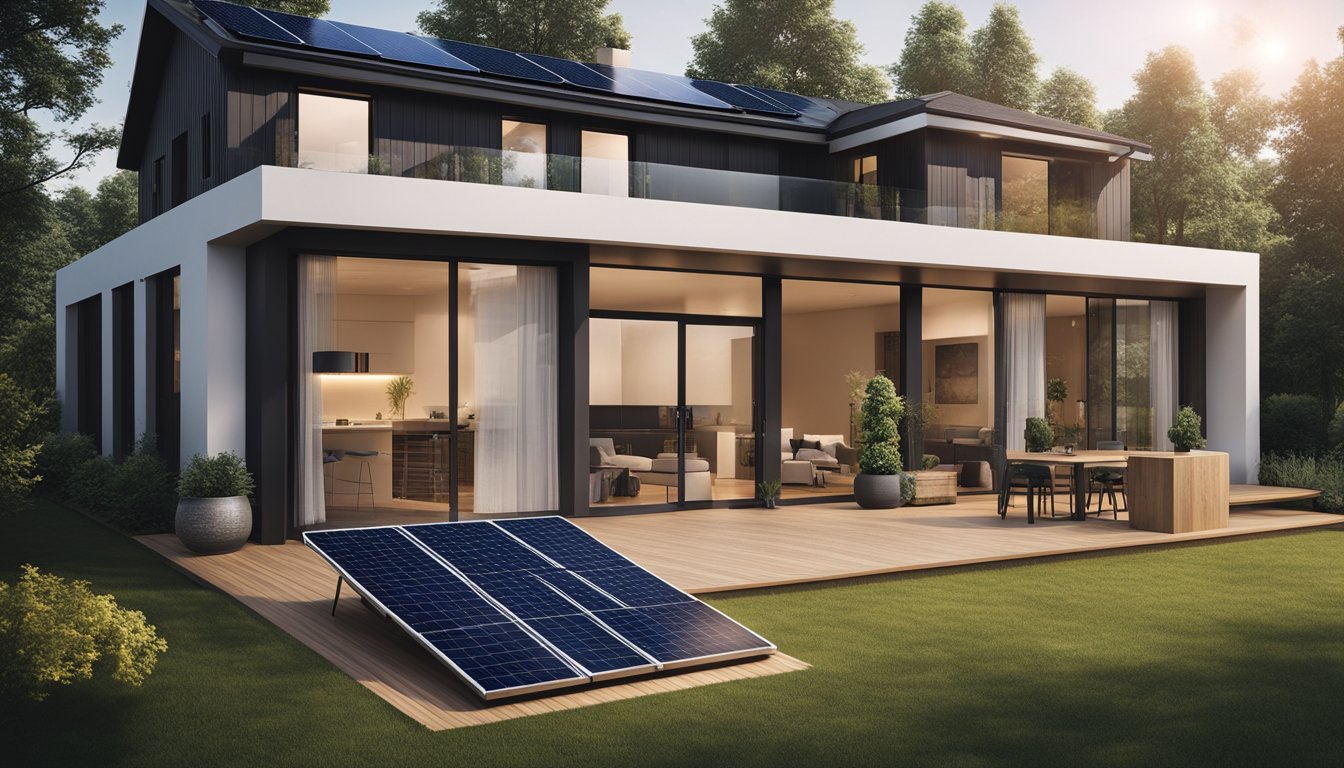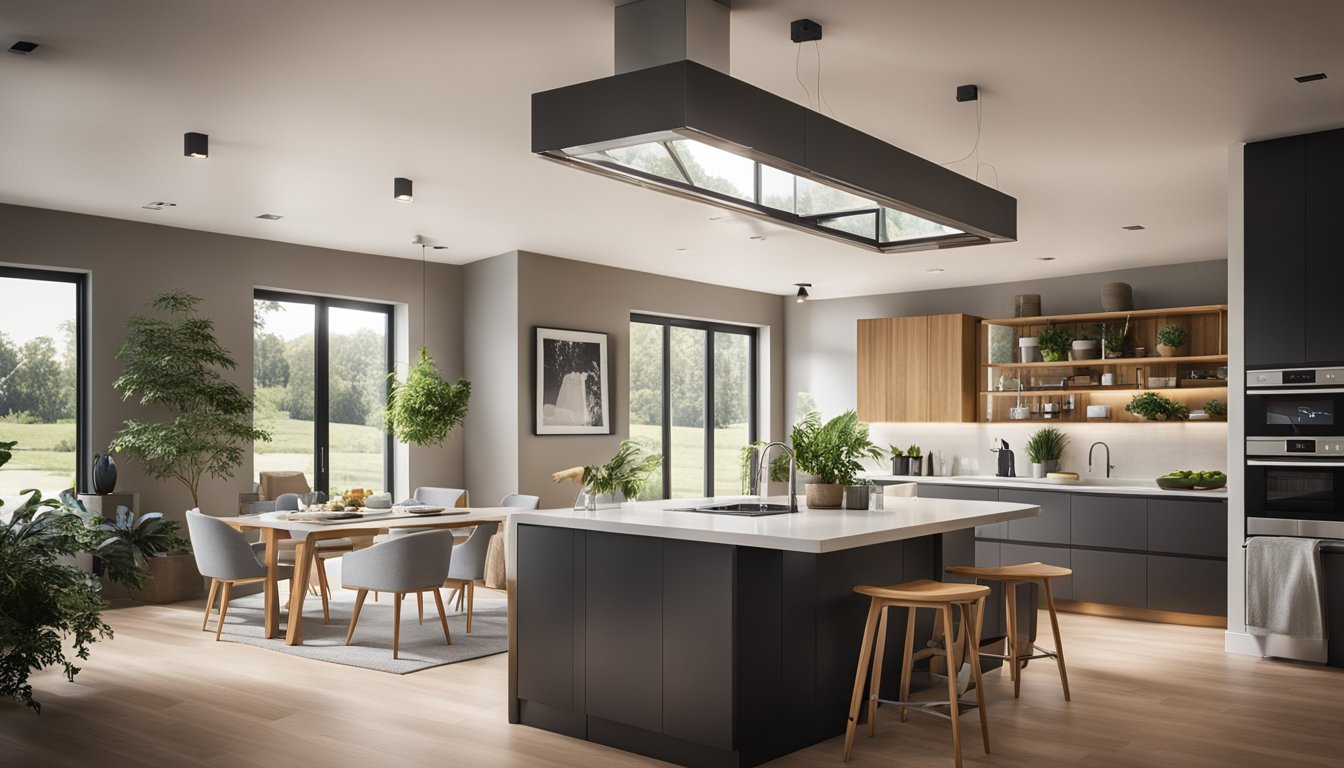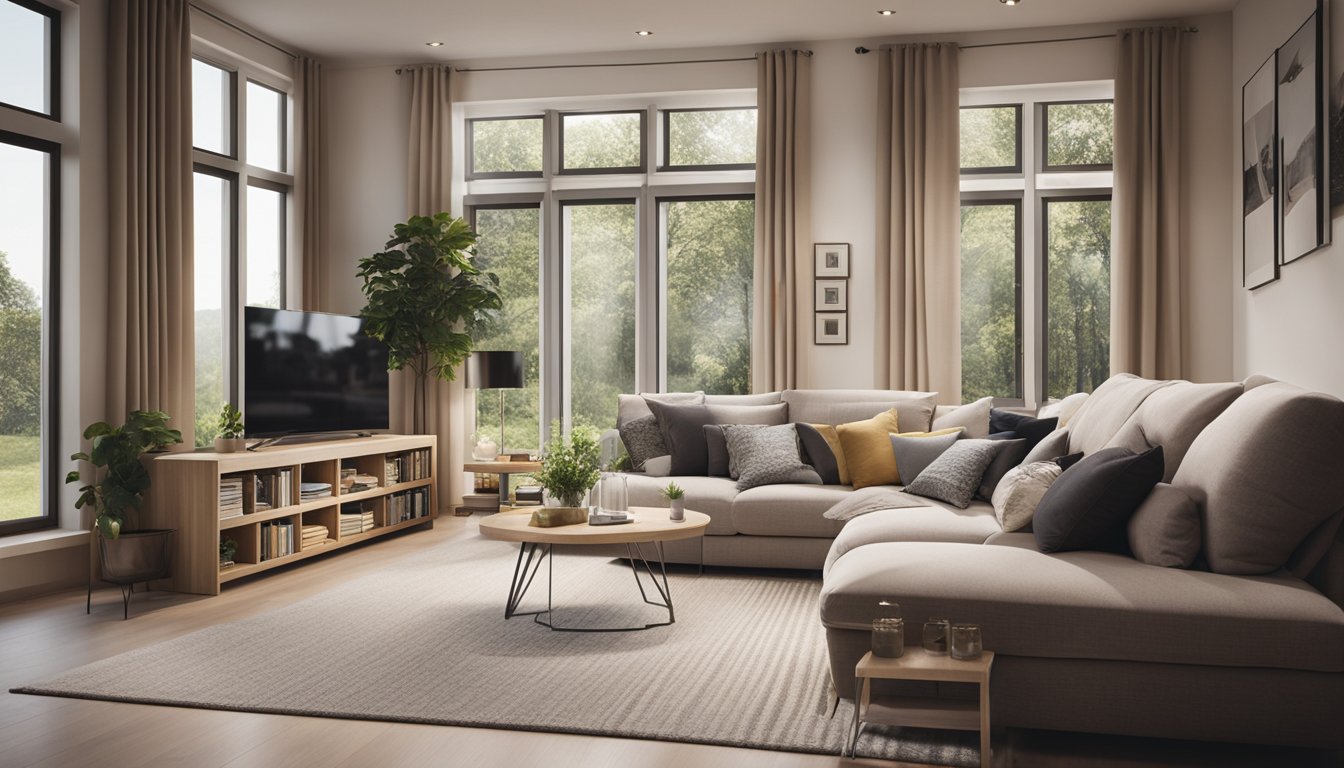Late updated: 26 Sep 2024 15:09
Written by: Daniel Harper
Maximising Energy Efficiency In Your Home Renovation: Strategies for Sustainable Upgrades
Renovating a home offers a perfect opportunity to overhaul its energy efficiency. With rising utility bills, updating your space to save energy pays off in the long run as we make conscious choices. By incorporating energy-efficient features, not only do we reduce our carbon footprint, but we also enhance our living environment and trim our energy costs.

Starting with a comprehensive home energy assessment, we gain insights into how energy flows within our dwelling. This knowledge arms us with the information needed to target areas for improvement. Enhancing heating, cooling, and lighting systems during renovation provides a lasting impact on both comfort and savings.
Energy-efficient solutions are not just environmentally friendly; they contribute significantly to our overall quality of life. Swapping traditional lighting with LEDs and upgrading to energy-efficient appliances are small changes that yield substantial benefits. Let’s delve into the myriad ways we can unlock our home's potential, ensuring it thrives in the most sustainable way possible.
Key Takeaways
- Conduct a home energy assessment to identify inefficiencies.
- Upgrade heating, cooling, and lighting systems for maximum efficiency.
- Implement energy-efficient practices for reduced utility bills.
Assessing Your Home's Energy Profile
To maximise our home's energy efficiency, we should start by assessing its current energy use. By pinpointing areas that waste energy, we can implement targeted improvements such as professional audits, enhanced insulation, and upgraded appliances.
Conducting a Professional Energy Audit
A professional energy audit is invaluable for identifying energy inefficiencies. An auditor evaluates our home's energy usage, often using techniques like the blower door test and thermographic scanning. These methods help locate air leaks and inadequate insulation.
During the audit, the auditor may also check heating and cooling systems and inspect for gas leaks. This comprehensive evaluation leads to specific recommendations for enhancements that can reduce our energy bills and improve comfort.
Improving Insulation and Air-Sealing
Improving our home’s insulation and air-sealing is crucial for energy efficiency. Proper insulation in walls, attics, and basements helps maintain consistent indoor temperatures. This means less reliance on energy-consuming heating and cooling systems.
Air leaks undermine insulation efforts. Seal gaps around windows, doors, and other openings to prevent energy loss. Effective air-sealing can achieve significant energy savings, contributing to lower energy bills and enhanced home comfort. Employing contractors with expertise in insulation and air-sealing can ensure the work meets high standards.
Upgrading to Energy-Efficient Appliances
Efficient appliances are critical for energy reduction. Replacing outdated devices with those bearing the Energy Star label can significantly decrease energy consumption. For instance, modern refrigerators, washing machines, and dishwashers consume far less energy and water.
Energy-efficient water heating systems and space heaters can also cut energy use. While they involve a greater initial investment, they lead to substantial savings long-term. Look for appliances with high efficiency ratings to ensure optimal performance and cost savings for our home.
Optimising Heating, Cooling, and Lighting

Maximising energy efficiency in our homes involves making smart choices about heating, cooling, and lighting. By selecting the right systems and making targeted improvements, we can significantly reduce energy costs and create a more comfortable living environment.
Selecting Efficient Heating and Cooling Systems
Choosing the right heating and cooling systems is crucial for energy efficiency. We should consider systems that utilise solar energy or support passive solar heating. Modern solutions like smart thermostats can adjust temperatures based on our schedule, leading to significant energy savings.
Programmable thermostats provide another layer of control, allowing us to reduce energy consumption when the home is unoccupied. Efficient heating and cooling systems, such as those with an ENERGY STAR rating, ensure optimal energy use. Additionally, we can improve efficiency with storm windows and sealing gaps around doors and windows.
Enhancing Natural Light and Ventilation
Adding features like skylights and larger windows can drastically increase natural light, reducing the need for artificial lighting during the day. Well-placed windows and doors also support cross-ventilation, naturally cooling our living spaces without the need for air conditioning.
By strategically designing window placement and utilising passive solar heating, we can harness the sun's energy, warming our home in the winter and maintaining a comfortable temperature. Implementing ceiling fans also aids in reducing reliance on full-scale cooling systems, as they circulate air and create a cooling breeze.
Installing Advanced Lighting Solutions
Incorporating advanced lighting options can greatly reduce energy use. We should explore LED bulbs, known for their efficiency and longevity, as they consume less energy and reduce electricity bills. For even greater efficiency, smart lighting systems can be programmed to suit different times of the day and activities.
Furthermore, motion sensor lights ensure that no room is needlessly illuminated, particularly in infrequently used spaces. Dimmers offer another avenue for controlling light intensity, making it easy to adjust lighting based on need and preference, thus enhancing the comfort and energy performance of our homes.
Frequently Asked Questions

When considering a home renovation, enhancing energy efficiency is a priority for many. We address common questions about strategies, tax implications, and practical steps for energy savings.
What are the top strategies for enhancing the energy efficiency of a home during renovation?
Sealing air leaks and upgrading insulation are crucial for preventing energy loss. Implementing air source heat pumps can offer savings across seasons. Smart thermostats help optimise energy usage by adapting to our daily patterns. Choosing ENERGY STAR certified appliances ensures efficient operation, reducing long-term energy costs.
How do tax credits for energy-saving home improvements work?
The Inflation Reduction Act has expanded tax credits available for energy-efficient improvements. These credits help offset the initial costs of renovations. By consulting the updated FAQs in resources like Fact Sheet 2024-15, we can gain detailed insights into eligibility and the application process for these benefits.
Which home design alterations contribute most to improving energy efficiency?
Open layouts that maximise natural light reduce dependency on artificial lighting. Installing large, energy-efficient windows enhances insulation and enhances aesthetic appeal. Green roofing options can improve insulation and manage rainwater. Incorporating these design elements helps us achieve both functionality and sustainability.
What steps can homeowners take to significantly reduce their home's energy usage?
Switching to LED or CFL bulbs can significantly cut lighting costs. Regular maintenance of HVAC systems ensures they function efficiently. We can also use programmable thermostats to manage heating and cooling needs more precisely.
What measures can be implemented to build a low-cost, energy-efficient home?
Using recycled or sustainable materials can reduce costs and environmental impact. Designing smaller, multifunctional spaces minimises energy needs. Renewable energy sources, like solar panels, can drastically reduce reliance on conventional energy, helping us lower long-term utility bills.
In what ways can industry practices inform residential energy efficiency improvements?
Industry practices often emphasise energy management systems for efficiency and sustainability. We can apply similar concepts by conducting performance assessments at home. This involves regular audits to identify areas for improvement and tailoring solutions based on our unique energy consumption patterns.
